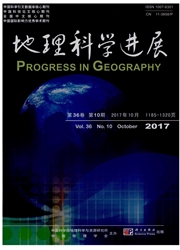

 中文摘要:
中文摘要:
资源与权力密切相关,具有政治性。只有提升到社会建构层面来认知旅游资源内涵,才得以洞悉中国旅游资源规制发展演变的本质。以广东南昆山温泉为典型案例,通过实地调查、政府档案梳理和深度访谈等方法对南昆山温泉资源规制的权力和社会过程进行深度考察,以期透过南昆山温泉的典型案例形成对中国旅游资源规制更为深入的理解。研究表明,中国在旅游资源领域的市场化改革在最近30 a时间里建立起一套资本逻辑的话语霸权。在国家拟定的市场化路径下,个人(开发商)逐渐取代国家成为各地温泉资源规制的主角;地方政府与开发商的联合很大程度上主导了温泉资源地方规制的演变过程,进而导致了普遍的社会非正义的现象。要维护旅游资源开发中的正义原则,就需要破除国家与社会对发展的迷思,并借由普遍主义的阶级政治来抵抗不正义的资本积累过程。
 英文摘要:
英文摘要:
Nature resource was dominantly understood in physical terms previously. When nature resource was not considered abundant and freely available anymore, the‘management'of non-human natures became important with the capitalization and marketization of nature resources. Resource, therefore, is political as a specific outcome of competing claims over access to, controling over, and definition of nature. This process of social negotiation is highly relevant with the regulation concept. Adopting the above understanding of the nature resource and using the methods of field survey, document analysis and in-depth interviews, this article examines the power and social process of the regulation on one of the hot spring destinations in Guangdong Province. The results show that the central government, the local government, the developer and the local communities are all play significant roles on the regulation process. Following the market path regulated by the central government, the private developer gradually takes the place of the central government and becomes the influential actor by allying with the local government. To some extent, the alliance between the private developer and the local government dominates the regulation process of the hot spring destination, and even transgresses the market law. During this process, the property rights of the local communities are displaced or even deprived without the support of legal authorities. In order to achieve the goal of a sustainable and healthy development of the hot spring destination, the rights of the local communities should be considered and the more standardized market-oriented mechanisms should be formulated in practice. The concept of resource regulation describes the processes by which the inherent tensions over resource definition, resource access and resource use are managed and contained. Different from that of much geographical literature on resources which circumscribes resource regulation as resource management enacted by an administrative state, we arg
 同期刊论文项目
同期刊论文项目
 同项目期刊论文
同项目期刊论文
 期刊信息
期刊信息
